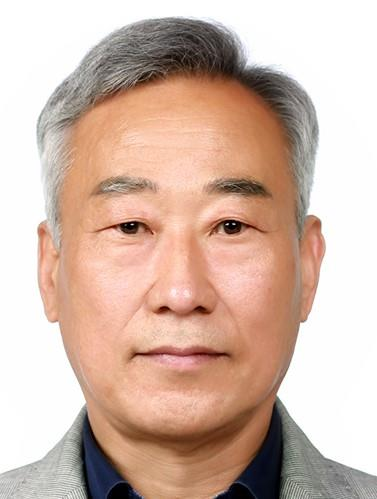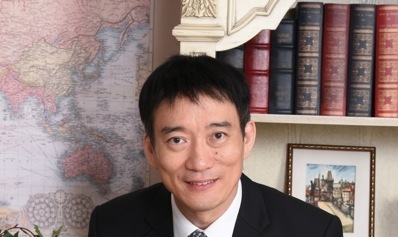2023
Invited talk
ATC 2023 Invited talk
Roh Yeachul

Affiliation
Vice President / Capital Region Research Center
ETRI (Electronics and Telecommunications Research Institute) Gyeonggi-do, Korea
Abstract
Section 1-1: Semiconductor Design Technology Trends and Introduction of ETRI Capital Region Research Center Devices that are related to ICT are complex. With the improvement of various functions, a low-powered and high-performance semiconductor chip (SoC: System on a Chip) which is used as a core component is required.
The definition and characteristics of SoC as well as technology trends and markets of AI semiconductor and MPU design which determine the competitiveness of ICT-related products will be discussed.
Moreover, the research area of the Capital Region Center of ETRI, which has been supporting the development of the Korean SoC and artificial intelligence industry for more than 20 years, will be explained in detail.
Biography
ROH Yeachul received a B.S. degree from Daejeon University, Daejeon, South Korea, an M.E. degrees in the Department of Convergence Electronics from Hanyang University, Seoul, South Korea, in 2012, He majored in semiconductor standard cell and Channel Coding IC design for CDMA mobile communication systems.
He supported the production of MPW Chips by master's and doctoral students nationwide through the development of semiconductor standard cell libraries and participated in the development and commercialization of the world's first mobile communication (CDMA) MODEM chip. Also, he developed a training curriculum to nurture professional engineers for semiconductor design (11 weeks), providing lectures as well.
Furthermore, he established a training system including recruitment through job fairs, which are regularly attended by semiconductor-related companies. It has been operated until nowadays since 2000. Yeachul ROH has been serving as a chief researcher in ETRI since 1986. He was elected as a vice president (head of the Capital Region Center of ETRI) in 2023. His major research topics include semiconductor design Development, CDMA (Code Division Multiple Access) System Development, SoC (System on a Chip) Design Methodology, and semiconductor design Expert Training.
Kim Jun Sung

Affiliation
Director, SoC Human Resource Development Section, Sudogkwon Research Center
ETRI(Electronics and Telecommunications Research Institute) Gyeonggi-do, Korea
Abstract
Section 1-2: Status of employment-related IC design training The employment-related IC design training course of the SW-SoC Center's SoC Human Resources Training Section is Introduced. ETRI SoC Human Resources Training Section has been carrying out this project since 2009 for trainees to get a job at a semiconductor design company. Trainees are students who want to work in semiconductor design-related fields. The contents of each intensive semiconductor design curriculum for 10 weeks during the summer vacation will be explained in detail and found out the employment status of graduates so far.
Biography
Kim Jun Sung received a B.S. degree in electronic engineering from Hongik University, Seoul, South Korea, and an MS degree in electronic engineering from the Korea University, Seoul, South Korea in 2010. His major is the ICdesign methodology. He has been a director with the ETRI (Electronics and Telecommunications Research Institute) Soc Human Resource Development Section, South Korea from 2017 to current.
He also served as a Manager, of LG Electronics Advanced Material & Device Research Institute Division R&D Planning Team for Researching future technologies and developing new business, from 2011 to 2016. His major research topics include RF (Radio Frequency) Development, SoC (System on a Chip) Design Methodology, and Industry Promotion.
Park Jang Hyun

Affiliation
Research Specialist /Ph.D.
IMI (Industrial Management Institute) Gyeonggi-do, Korea
Abstract
Section 2: Semiconductor Industry Trends The semiconductor industry has a significant ripple effect throughout ICTrelated industries. By integrating the functions of ICT-related components intoone chip, it is showing fierce competition in securing semiconductor technology and markets in various fields.
Accordingly, the role and sales status of global companies such as semiconductor design and manufacturing, and so on are examined. It also introduces the chip design areas and sales status of fabless companies in Korea.
Biography
Park Jang Hyun received a B.S. degree from Sogang University, Seoul, South Korea, an M.E. degree in computer engineering from the Asian Institute of Technology, Bangkok, Thailand, in 1985, and a Ph.D. degrees in electronic engineering from the Chungnam National University, Daejeon, South Korea in 1997.
His major is the IC design methodology. He was a Principal Researcher with the ETRI (Electronics and Telecommunications Research Institute), Daejeon, South Korea from 1987 to 2021. He also served as a professor of industryacademic cooperation at Ajou University in 2019.
He has been a Research Specialist at IMI (Industrial Management Institute), South Korea, since 2021. His major research topics include TDX (Time Division Exchanger) Development, CDMA (Code Division Multiple Access) System Development, SoC (System on a Chip) Design Methodology and Industry Promotion.

Invited talk: Joint source-channel coding systems based on double-protograph low-density parity-check codes
Prof. Francis C. M. LAU
The Hong Kong Polytechnic University, IEEE Fellow
Biography
Francis C. M. Lau received the BEng(Hons) degree in electrical and electronic engineering and the PhD degree from King's College London, University of London, UK. He is a Professor and the leader of the Future Wireless Networks and IoT Research Focus Area at the Department of Electronic and Information Engineering, The Hong Kong Polytechnic University, Hong Kong SAR, China. He is also a Fellow of IEEE and a Fellow of IET.
He is a co-author of two research monographs and a co-inventor of six US patents. He has published more than 330 papers. His main research interests include channel coding, cooperative networks, wireless sensor networks, chaos-based digital communications, applications of complex-network theories, and wireless communications. Over the past years, he has secured research grants and consultancy projects from various organizations including the Hong Kong Research Grant Council; Hong Kong Jockey Club; Highways Department, Hong Kong SAR; National Natural Science Foundation of China; and Huawei Technologies Co. Ltd. He is a co-recipient of one Natural Science Award from the Guangdong Provincial Government, China; eight best/outstanding conference paper awards; one technology transfer award; two young scientist awards from International Union of Radio Science; and one FPGA design competition award.
He was the General Co-chair of International Symposium on Turbo Codes & Iterative Information Processing (2018) and the Chair of Technical Committee on Nonlinear Circuits and Systems, IEEE Circuits and Systems Society (2012-13). He served as an associate editor for IEEE TRANSACTIONS ON CIRCUITS AND SYSTEMS II (2004-2005 and 2015-2019), IEEE TRANSACTIONS ON CIRCUITS AND SYSTEMS I (2006-2007), and IEEE CIRCUITS AND SYSTEMS MAGAZINE (2012-2015). He has been a guest associate editor of INTERNATIONAL JOURNAL AND BIFURCATION AND CHAOS since 2010. He also served as a member of the IEEE CAS Society Fellow Evaluation Committee in 2022.
